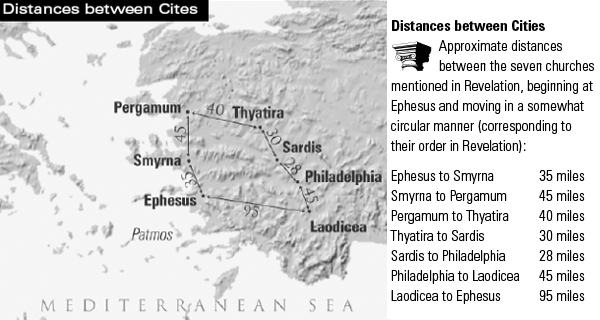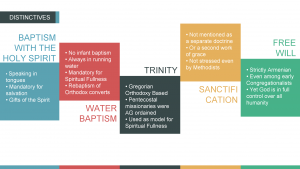Trends and Issues Affecting the Next American Spirituality
 Three Trends and Three Issues Affecting Asian Missions” by David Barrett bring focus on obvious antipode of missionary need in the Western hemisphere today. The Macedonian Call to 3.7 billion Asian people with some 9% Christians is no small issue in global missions. At the same time, America becoming the 3rd largest mission field in the world is the obvious missions gap in the Western hemisphere. The parallels in post-modernity are many.
Three Trends and Three Issues Affecting Asian Missions” by David Barrett bring focus on obvious antipode of missionary need in the Western hemisphere today. The Macedonian Call to 3.7 billion Asian people with some 9% Christians is no small issue in global missions. At the same time, America becoming the 3rd largest mission field in the world is the obvious missions gap in the Western hemisphere. The parallels in post-modernity are many.
About 20 years ago, a book called “The Next American Spirituality” summarized the culture of today’s American spirituality and its relation to the apostolic church. The main question is, “What would a theology of the church look like that took seriously the fact that North America is now itself a mission field?”
To answer the question, Gallup and Jones examined how America does Biblical spirituality, using the gathered data to analyze its shift and direction. According to their survey, the marks of the next American spirituality were going to be (in short):
1. Bull-market church growth
2. Self-centered religion of me and thee
3. Hunger for experience – any experience
4. Search of roots amid the relativism
5. Quest for community resulting in self-belongingness and self-realization
In our current context of ministry two decades later, all of the above signs are evident and true. This is due on hand to the constant shift in the cultural paradigm, as well as the obvious shift in the identity and practices of the Christian church in the postmodern context. It almost seems like instead of being the model, the church is following a model, which not only changes the churches identity but interferes with its original evangelistic goal and global mission.
Call for Parents and Caregivers to Have Time of Uninterrupted Play with Their Children
As a Board Certified Licensed Professional Counselor with nearly 20 years of experience in the field of play therapy, I understand the vital importance of play in the life of a child. With the COVID-19 pandemic which has swept the world, our children are being exposed to stressors and events that no child should ever have to endure. Children need play in their lives now more than ever before. Play is their only way to communicate and to process these traumatic times. A time of play allows for children to increase their emotional strength and reduces stress which in turn increases our children’s immunity defenses.
It is for this reason that I feel the urgency to call all parents and caregivers to set aside a minimum of 45 minutes to 1 hour during the day to play with their children. This structured time should meet the following guidelines:
- If possible should be one parent with one child at a time even if you have to limit play to only 30 minutes
- Play time is uninterrupted with no texting, social media, online surfing or phone use of any type
- Should be in a safe place
- Parents and caregivers need to offer a time which is non-judgmental in the parameters of protection
- Needs to be led by child and not adult, offering no suggestions about what or how to play unless asked from child
- Do not interrupt the child’s process by being impatient for child to finish tasks at hand
- This is not a time for teaching. It is a time of reflecting and empathetic listening of feelings.
- Repeat back to the child their actions during play instead of offering your biased insight.
- Listen to what your children are telling you via their play
- Provide unconditional love and support
There is always time for play. It should not be underestimated. During this time of crisis it is a basic necessity and will strengthen our children. We will make it through this together.
– K. Donev, LPC/MHSP, NCC
10 New Insights on Fighting COVID-19: Increasing Immunity, Natural Action and Common Sense
- COVID-19 can live for some 24-hours on cardboard. Leave home-delivery shipments in garage for this time and then bring only inside contents into home after disinfecting them.
- Shave facial hair and consider removing fake fingernails or cutting long nails.
- Eucalyptus oil shows anti-viral activity as a vapor.
- Be careful with DIY hand-sanitizers – only those that have 60-70% alcohol content will be effective.
- Soap and water remove germs from skin, but hand sanitizer just reduces germs – per CDC.
- COVID-19 can also transmit through our eyes and tiny viral particles or aerosols, can penetrate masks and reusing masks can be a breeding ground for virus.
- MERV 13 filters capture airborne viruses and bacteria from coughs and sneezes. Clean air helps keep your immune system strong even though it might not remove COVID-19.
- Sucking on zinc lozenges at first signs of sickness can create barrier for COVID-19 to enter body.
- Steam for 5 minutes and dishwashers reaching a final rinse temperature of 150 degrees can disinfect pet bowls, scrub pads, some kids’ toys and more and drying laundry on hot cycle for 45 minutes is effective against certain viruses and germs.
- Worry only decreases your immunity to fight off viruses; prayer is proven to increase it.
Ministry by Walking Around and the Network of Seven Churches of Revelation
Ministry by Walking Around and the Network of Seven Churches of Revelation
Although the Book of Revelation has been vastly studied and interpreted throughout church history, usually the focus is on one major issue within the text, namely, the role and future of the church. The main reason for this has been the in-depth prophetic and pastoral messages to the Seven Churches.
The value of the messages to the Seven Churches of Revelation is constituted by the fact that they are the last recorded Biblical messages to the Christian Church.[1] The letters to the Seven Churches obviously do not contain all of the usual elements used in the New Testament epistolary form. It is generally accepted that they were written as an application of the Revelation context and not as individual messages to the churches.
This contextual connection between the seven letters suggests a network of inter-church communication which was established between the seven churches. Several common elements are obvious from the text, the most obvious is their common geographical location as shown in Figure 1.
Figure 1: Distances between the Seven Cities of Revelation
The addressed churches are located clockwise, almost like they are forming a strategic circle of ministry.[2] Most churches are located thirty to forty miles from one another, which perhaps was the possible daily limit for traveling during that time. The shape of the circle of ministry, based on the order in which the churches were addressed, suggests a method of managing known today as Management by Walking Around (MBWA). The example in Revelation not only presupposes such methodology, but purposefully gives its clockwise direction in relation to the location of origin of the letters from the Island of Pathmos.
The purposeful positioning of the churches provided a common network (circle of ministry). It is also obvious from the text that at the time of writing, simplicity and democracy in organization were characteristics of the New Testament church government.[3] In the context of networking, each church maintained its own individuality because it is addressed separately in the text.[4]
Furthermore, the seven churches shared a common context of ministry in the area of Asia Minor which consisted of a great mixture of languages, customs and religions. All of the seven churches were located in cities which were under Roman rule and combined the customs of Roman, Greek, Assyrian, Persian, Babylonian, Egyptian and Jewish cultures as well as the various languages and dialects within them. The commonality in the context of ministry continued with the presence of numerous religious groups, cults, sects and gilds which were closely interwoven with civil affairs. Universal citizenship, universal religion, and a universal church were all ideas for which the Roman Empire was beginning to prepare. In such context, the seven churches shared a common goal of ministry, namely, spreading the Christian message.[5]
The seven letters were inspired by one occasion and one purpose as a tool for inter-church networking.[6] The message was not sporadic or spontaneous but thoughtfully planned and designed for each of the churches, based on an in-depth knowledge of the individual problems, members and solutions for future development.[7] The text demonstrates a common structure within the church illustrated by the common structure shared by each message. The letters reveal that the congregations shared similar practices of worship, ministry and teaching which were accompanied by problems and persecution.
A significant part of the common structure was the leadership because each church had a divinely-appointed messenger,[8] addressed by a common “divinely-charged”[9] network elder, who received a transmitted divine message. Such process shows that the networking was done by means of communication, of which the epistolary form is also proof.[10] The written text was only a formal documentary or a contract of the holistic communication accomplished through various multimedia means including those that relied on audio, visual and other senses. It constructed a mystical, divinely-inspired, supernatural and non-virtual reality which transformed the recipient of the message in the same way it did the messenger. Through this means, the network communication was not a miscommunication, but rather an authentic translation from the divine source to the very members of the congregations.
This form of communication was absolutely necessary for the common context of ministry in which the seven churches operated. This common context was the earth, not heaven,[11] and their common goal was to conquer.[12] Yet, at the same time the text is undisputable in that each church contained people prepared to conquer. This fact makes the victory of the church inevitable. Thus, while the churches are dealing with various problems and persecutions, they are already conquerors.
This observation brings the reader to the final commonality which the seven churches share; namely, that besides the earthly network of ministry there is another greater, divine, heavenly network which is in control. Such a conclusion is obvious from the fact that all of the churches without exception are known to the sender of the messages.[13] Their problems are relevant, criticism and encouragement which are prophetically delivered solutions are divinely provided and conquest of the church over the problems is definite and inevitable. This is undisputable proof that a God-centered New Testament networking of churches is the dependable and enduring model for both ministry networking and church government. Precisely this heavenly network is the supernatural source of the unique approach through which problems of the churches are to be solved. Thus, in addition to a common present reality, the churches share a future earthly applicability of the paradigm of ministry which makes their message relevant today.[14]
[1] Wade H. Horton, Lectures on the Seven Churches (Cleveland: Pentecostal Resource Center, n/a), 6.
[2] Henry M. Morris, The Revelation Recorded (Wheaton: Tyndale House Publishers, 1987), 66. Merril Tenney, Interpreting Revelation (Grand Rapids: Wm. B. Eerdmans Pubslihing Co., 1957), 50. For an in-depth discussion on the geographical location of the Seven Churches, its significance for the circulation of the letters and the leadership organization see William M. Ramsey, The Letters to the Seven Churches (Grand Rapids: Baker book House, 1979), 186.
[3] McDowell, 38.
[4] McDowell, 37.
[5] Ramsey, 120-21.
[6] Ramsey, 40.
[7] Ramsey, 39-40.
[8] Bruce M. Metzger, Breaking the Code (Nashville: Abingdon Press, 1993), 30. Ramsey, 69, 74ff.
[9] Ramsey, 80.
[10] McDowell, 37.
[11] Metzger, 29.
[12] Metzger, 30.
[13] Wade Horton, Seven Golden Candlesticks (Cleveland: Pathway Press, 1974), 72.
[14] Edward A. McDowell, The Meaning and Message of the Book of Revelation (Nashville: Broadman Press, 1951), 35. Clovis G. Chappell, Sermons from Revelation (New York: Abingdon-Cokesbury Press, n/a), 59.
The Sinking of Cross-cultural Bridges and the Collapse of the “Western Theological Corpus”
Bridges to people and culture do not work any longer because they never touch the water of troubled cross-cultural issues. For the same reason, contextual theology does not work any more – once faced with the deep cross-cultural crises of faith and conviction, it sinks with no hope.
We have long observed the collapse of the “Western Theological Corpus,” as Andrew Walls calls the structural problem in missions today. Main reason for its collapse is the failure to give answers to the theological questions emerging from the Global South. As a result, the colonial approach of doing missions, resonating in imperialistic cross-cultural ministry and ethnic conquest for assimilation of cultures, all have failed both the indigenous people and the mission sending agencies. Prayer has hence turned into a protest and prophecy for a new reality, where the encounter of missions is no less than the very cross-roads where we encounter God and others together.
Doing Missions in the Spirit in 2018
Integration of Learning and Faith
 The believers within our Pentecostal tradition, despite some historical presupposition against education, have generally strived to receive and impart knowledge much higher than what secular science can offer. Our paradigm of integration of faith and learning has come from a personal experience of knowing God rather than scientific method, and in a way it has become our own scientific method of testing truth beyond our religious context into daily life.
The believers within our Pentecostal tradition, despite some historical presupposition against education, have generally strived to receive and impart knowledge much higher than what secular science can offer. Our paradigm of integration of faith and learning has come from a personal experience of knowing God rather than scientific method, and in a way it has become our own scientific method of testing truth beyond our religious context into daily life.
Similarly, being formed in the Spirit impacts our lives holistically, even the areas of our deepest doubts, our most serious suspicions and our greatest fears. It is there that true discoveries occur and where we realize that we know not the cosmos, the earth, our land, our families and even ourselves unless we first know God. Faith and learning become a personal spiritual quest, which reaches beyond just a Christian worldview or interpretation of faith and reason, to our very beings and change us.
In my case, faith and learning developed from my personal experience as a fifth generation Pentecostal believer and Spirit-filled minister. I can truly say that it has been a journey of reaching and a quest of finding, one that has changed me forever. Education did not make me a minister of the Gospel, nor did it have the power to do so, but it most certainly made me a better minister and a servant of the Kingdom.
Along the way, God used teachers who did much more than just deliver content in classrooms, but established the faith into our hearts and minds. In my journey, they have become road markers who knew God and made Him known to others. The passion to become personally such a milestone in the spiritual journey of others has been the greatest challenge for integration of faith and learning within both our ministry and personal Pentecostal experience. For our journey with God should not be without a destination or an end. It should be about actually getting there, at the place and reality where Scripture declares with most definite certainty that “we shall know.”
Christmas Book Sale: Psychological Exploration of Communist and Post Communist Bulgaria
In the past five years since 2011, we have authored over two dozen books related to our ministry and mission work in Eastern Europe. As several of the prints are now almost exhausted and second/third editions and several new titles are under way, we are releasing all currently available editions in a Christmas sale through the month of December. All titles are available at up to 30% off and Amazon offers free shipping and extra savings for bundle purchases.
Our book available on sale today is:
Psychological Exploration of Communist and Post Communist Bulgaria
Silence in the face of evil is itself evil: God will not hold us guiltless.
Not to speak is to speak. Not to act is to act.
~Dietrich Bonhoeffer
 Surrounded with insecurity and uncertainty, the Bulgarian Evangelical believer finds great hope and comfort in the fact that God holds the future in His hands. Christianity is a reality that is certain. While having lived in a culture of oppression and persecution, the Bulgarian Evangelical believer now can trade a downtrodden spirit for one of triumph. The once atmosphere of turmoil is being transformed to one of liberation in the Spirit where chains of slavery are traded for a crown of joyous freedom. Living in the 21st century in a context of post communist and postmodern transformations, Bulgarian Evangelical believers must remain true to their historical heritage and preserve their identity in order to keep their faith alive. This unique testimony must be passed on to future Bulgarian generations by telling the story of the true Pentecostal experience.
Surrounded with insecurity and uncertainty, the Bulgarian Evangelical believer finds great hope and comfort in the fact that God holds the future in His hands. Christianity is a reality that is certain. While having lived in a culture of oppression and persecution, the Bulgarian Evangelical believer now can trade a downtrodden spirit for one of triumph. The once atmosphere of turmoil is being transformed to one of liberation in the Spirit where chains of slavery are traded for a crown of joyous freedom. Living in the 21st century in a context of post communist and postmodern transformations, Bulgarian Evangelical believers must remain true to their historical heritage and preserve their identity in order to keep their faith alive. This unique testimony must be passed on to future Bulgarian generations by telling the story of the true Pentecostal experience.
Obama, Marxism and Pentecostal Identity
Time and time again in the past several years, while ministering in churches across the United States, friends and partners ask us about our opinion on the political situation at home and around the world. Many of them ask the direct question of America becoming more and more socialist-like. Our response is that while people have the right to own a business, there cannot be communism, but this barely scratches the surface.
“Looking over the Wall” answers this and many other important questions about the current global reality from a very distinct Pentecostal and the same time post communist point of view. Yet, the text does it in a way, which can actually relate to popular American culture and current economic reality. The book provides Christian answers as of what defines our identity and makes us human – a right communism strips from the persona, the family and the church without much regard of the consequences that follow.
But this drastic dehumanization has an almost irreversible effect on the human psyche – a slavery mentality that penetrates the very heart of men and women and leaves forever its mark of fear, depression and insecurity. The book traces how Pentecostalism as faith and ideology has the power to deliver post communist communities from the grasp of oppressive governments and transform them into a socially relevant culture changing force. At the same time, it remains a warning to theologians who dare to flirt with Marxist idealism being fulfilled in the context of the New Testament ecclesia. And rightfully so!
The book is a must read for any and all who are ministering or planning to minister in a post communist culture or among post communist groups regardless of their geographical locale. For the principles it shows are valid for post community mentality everywhere. Preview and purchase your copy directly at Amazon.com
Doctrine of Free Will among Bulgarian Protestant and Pentecostal Believers
Historical and Doctrinal Formation of Holiness Teachings and Praxis among Bulgarian Pentecostals (Research presentation prepared for the Society of Pentecostal Studies, Seattle, 2013 – Lakeland, 2015, thesis in partial fulfillment of the degree of D. Phil., Trinity College)
Another peculiar characteristic present among early Pentecostals around the globe was the subject of free will. This was not a problem for the movement in Bulgaria. As strange as it may sound, among all publications and teachings by missionaries in Bulgaria during the 19th century there is no mention of Calvinism, election or predestination. Because Bulgaria’s traditional Eastern Orthodox orientation, both Congregational and Methodist missionaries taught Armenian free will. Even though many Bulgarian ministers were educated in the Calvinistic schools like Princeton and Auburn, Calvinism never picked up among Bulgarian Protestants. With the explosive growth of Bulgaria’s Pentecostals in the 1920s, this Armenian theological heritage was widely accepted amongst the movement.
Sanctification and Personal Holiness among Early Bulgarian Pentecostals
Historical and Doctrinal Formation of Holiness Teachings and Praxis among Bulgarian Pentecostals (Research presentation prepared for the Society of Pentecostal Studies, Seattle, 2013 – Lakeland, 2015, thesis in partial fulfillment of the degree of D. Phil., Trinity College)
With all said about the importance of Spirit baptism and the importance of the Trinity in the Pentecostal experience of the believer, it comes as a great surprise that sanctification was never mentioned as a specific doctrine among early Bulgarian Pentecostals. Voronaev’s teaching included: (1) salvation through new birth, (2) baptism with the Holy Spirit, (3) healing and (4) the second return of Christ. Sanctification was never specifically mentioned as a separate doctrine.
To this day, sanctification is not an official doctrine for the Evangelical Methodist Episcopal Church of Bulgaria. In 1928, Bulgaria’s Pentecostal Union also included holiness as number ten in their first bylaws. Sanctification was not defined as a second work of grace, but as a “continuous life of holiness”. With the enormous theological Methodist influence, it is astounding that the doctrine of sanctification was never taught as a separate work of grace. Even when after Pentecostalism spread in Bulgaria, it was not included in the tri-fold formula for “spiritual fullness” of the believer.
Nevertheless, the search for a deeper spirituality was always there. When liberal theology entered Bulgaria in the beginning of the 20th century, the more conservative believers were forced to separate from the larger city congregations into home services and cottage meetings.
These small communities were enclosed, but easily identified by their extreme personal asceticism. There was no use of instruments in worship, no denominational structure and a distinct social disengagement from the world. Men shaved their heads completely and grew long mustaches. They wore no dress ties, because they pointed downward toward hell. Women wore head coverings as a sign for the angels both within and outside church services. Even the mother of Bulgaria’s Pentecostalism, Olga Zaplishny, who was college educated and spent years in the United States wore a head cover and enforced all ladies to follow her example.
Prophetic and Persecuted Movement
![51DUWeyraBL._SY344_PJlook-inside-v2,TopRight,1,0_SH20_BO1,204,203,200_[1]](https://cupandcross.com/wp-content/uploads/2014/04/51DUWeyraBL._SY344_PJlook-inside-v2TopRight10_SH20_BO1204203200_1.jpg) Since a social movement that purposes liberation of the individual is always rejected by the present political and economic powers, Pentecostalism arises and develops in the midst of constant persecution and resistance. The constantly present struggle against evil, wrong and unrighteousness is the power that moves Pentecostalism to its final purposes. Once persecution disappears, Pentecostalism loses its original power and turns to a nominal religious organization, which continues to function and exist, however, outside the boundaries of its original purpose.
Since a social movement that purposes liberation of the individual is always rejected by the present political and economic powers, Pentecostalism arises and develops in the midst of constant persecution and resistance. The constantly present struggle against evil, wrong and unrighteousness is the power that moves Pentecostalism to its final purposes. Once persecution disappears, Pentecostalism loses its original power and turns to a nominal religious organization, which continues to function and exist, however, outside the boundaries of its original purpose.
The theology of the Persecuted Church is a theology of martyrdom. The context of persecution is a constantly present formational factor in Pentecostalism worldwide, and as such it is a universal characteristic of the movement. Only as such can Pentecostalism act in its God-given prophetic authority. In the same prophetic power in which John prophesies of the coming Baptiser with the Holy Spirit, the Early Pentecostals preached about the Fire from Heaven prior to the actual experience of the Holy Spirit baptism. The message of the movement then becomes a prophetic utterance under which the movement grows and develops to the point of fulfillment of the promise given by God.












